Honda CR-V vs Hyundai i20 – Differences & prices compared
Everyday use, family trips or long-distance drives – here’s where the differences show.
Discover whether Honda CR-V or Hyundai i20 fits your lifestyle better.
Here’s where it gets real: The technical differences in detail
Costs and Efficiency: When it comes to price and running costs, the biggest differences usually appear. This is often where you see which car fits your budget better in the long run.
Hyundai i20 has a significantly advantage in terms of price – it starts at 17400 £, while the Honda CR-V costs 42800 £. That’s a price difference of around 25371 £.
Fuel consumption also shows a difference: the Honda CR-V manages with 0.90 L and is therefore significantly more efficient than the Hyundai i20 with 5.20 L. The difference is about 4.30 L per 100 km.
Engine and Performance: Power, torque and acceleration are the classic benchmarks for car enthusiasts – and here, some clear differences start to show.
When it comes to engine power, the Honda CR-V has a clearly edge – offering 184 HP compared to 100 HP. That’s roughly 84 HP more horsepower.
In acceleration from 0 to 100 km/h, the Honda CR-V is evident quicker – completing the sprint in 9 s, while the Hyundai i20 takes 11.10 s. That’s about 2.10 s faster.
In terms of top speed, the Honda CR-V performs minimal better – reaching 195 km/h, while the Hyundai i20 tops out at 183 km/h. The difference is around 12 km/h.
There’s also a difference in torque: the Honda CR-V pulls clearly stronger with 335 Nm compared to 200 Nm. That’s about 135 Nm difference.
Space and Everyday Use: Beyond pure performance, interior space and usability matter most in daily life. This is where you see which car is more practical and versatile.
Both vehicles offer seating for 5 people.
In curb weight, the Hyundai i20 is clearly lighter – 1088 kg compared to 1821 kg. The difference is around 733 kg.
In terms of boot space, the Honda CR-V offers clearly more room – 617 L compared to 352 L. That’s a difference of about 265 L.
In maximum load capacity, the Honda CR-V performs clearly perceptible better – up to 1710 L, which is about 545 L more than the Hyundai i20.
When it comes to payload, Honda CR-V minimal takes the win – 475 kg compared to 472 kg. That’s a difference of about 3 kg.
Our conclusion: The Honda CR-V proves to be dominates this comparison and thus becomes our DriveDuel Champion!
Overall, Honda CR-V is the better all-rounder in this comparison.
Honda CR-V
The Honda CR-V presents a blend of practicality and comfort, making it a reliable choice for families and adventure seekers alike. With its spacious interior and refined design, it offers a pleasant driving experience whether in urban environments or on long road trips. This model also boasts a range of advanced safety features, enhancing driver confidence and passenger security.
details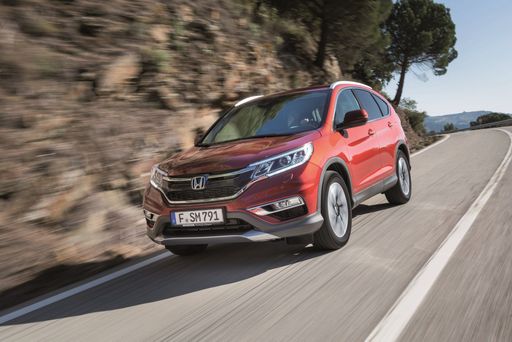 @ hondanews.eu
@ hondanews.eu
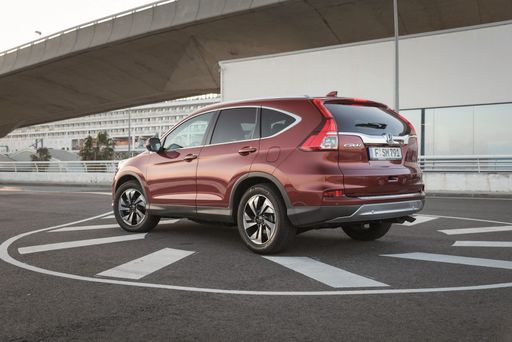 @ hondanews.eu
@ hondanews.eu
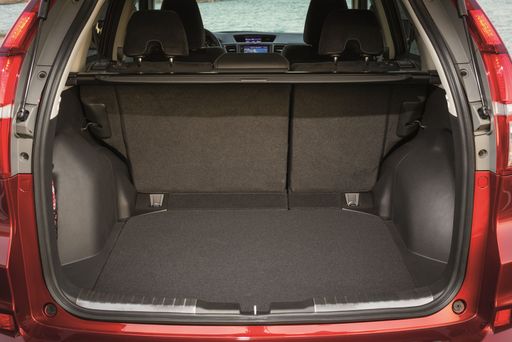 @ hondanews.eu
@ hondanews.eu
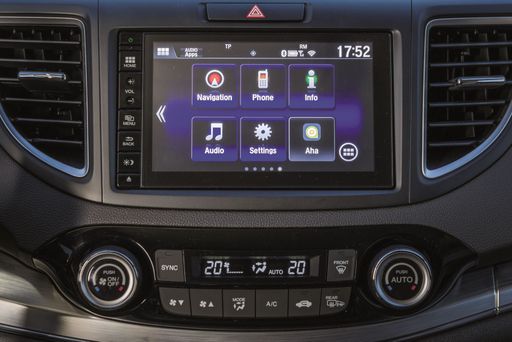 @ hondanews.eu
@ hondanews.eu
Hyundai i20
The Hyundai i20 impresses with its sleek design and modern aesthetics, making it a stylish choice in the compact car segment. Its interior is thoughtfully designed, offering comfort and advanced technology for a pleasurable driving experience. The vehicle also stands out with its efficient performance and agile handling, making city driving a breeze.
details @ hyundai.news
@ hyundai.news
 @ hyundai.news
@ hyundai.news
 @ hyundai.news
@ hyundai.news
 @ hyundai.news
@ hyundai.news
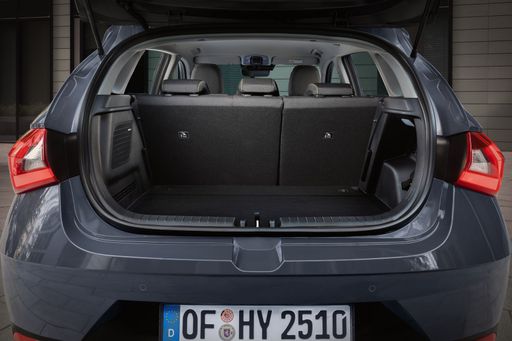 @ hyundai.news
@ hyundai.news

|

|
|
|
|
Costs and Consumption |
|
|---|---|
|
Price
42800 - 52100 £
|
Price
17400 - 24000 £
|
|
Consumption L/100km
0.9 - 6.7 L
|
Consumption L/100km
5.2 - 5.3 L
|
|
Consumption kWh/100km
-
|
Consumption kWh/100km
-
|
|
Electric Range
79 km
|
Electric Range
-
|
|
Battery Capacity
-
|
Battery Capacity
-
|
|
co2
19 - 152 g/km
|
co2
119 - 121 g/km
|
|
Fuel tank capacity
46 - 57 L
|
Fuel tank capacity
40 L
|
Dimensions and Body |
|
|---|---|
|
Body Type
SUV
|
Body Type
Hatchback
|
|
Seats
5
|
Seats
5
|
|
Doors
5
|
Doors
5
|
|
Curb weight
1821 - 1988 kg
|
Curb weight
1088 - 1190 kg
|
|
Trunk capacity
579 - 617 L
|
Trunk capacity
352 L
|
|
Length
4706 mm
|
Length
4065 - 4075 mm
|
|
Width
1866 mm
|
Width
1775 mm
|
|
Height
1673 - 1684 mm
|
Height
1450 - 1455 mm
|
|
Max trunk capacity
1634 - 1710 L
|
Max trunk capacity
1165 L
|
|
Payload
439 - 475 kg
|
Payload
450 - 472 kg
|
Engine and Performance |
|
|---|---|
|
Engine Type
Plugin Hybrid, Full Hybrid
|
Engine Type
Petrol
|
|
Transmission
Automatic
|
Transmission
Automatic, Manuel
|
|
Transmission Detail
CVT
|
Transmission Detail
Dual-Clutch Automatic, Manual Gearbox
|
|
Drive Type
Front-Wheel Drive, All-Wheel Drive
|
Drive Type
Front-Wheel Drive
|
|
Power HP
184 HP
|
Power HP
79 - 100 HP
|
|
Acceleration 0-100km/h
9 - 9.5 s
|
Acceleration 0-100km/h
11.1 - 13.7 s
|
|
Max Speed
187 - 195 km/h
|
Max Speed
166 - 183 km/h
|
|
Torque
335 Nm
|
Torque
113 - 200 Nm
|
|
Number of Cylinders
4
|
Number of Cylinders
3 - 4
|
|
Power kW
135 kW
|
Power kW
58 - 74 kW
|
|
Engine capacity
1993 cm3
|
Engine capacity
998 - 1197 cm3
|
General |
|
|---|---|
|
Model Year
2024 - 2025
|
Model Year
2024
|
|
CO2 Efficiency Class
B, D, E
|
CO2 Efficiency Class
D
|
|
Brand
Honda
|
Brand
Hyundai
|
What drivetrain options does the Honda CR-V have?
The Honda CR-V is available as Front-Wheel Drive or All-Wheel Drive.
The prices and data displayed are estimates based on German list prices and may vary by country. This information is not legally binding.
